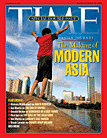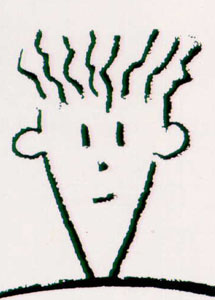The Making of Modern Asia
 After BusinessWeek, it’s Time’s turn to write something about the rising power of Asia. Kishore Mahbubani, Dean of the Lee Kuan Yew School of Public Policy starts off with an excellent note on the dominance of Asia.
After BusinessWeek, it’s Time’s turn to write something about the rising power of Asia. Kishore Mahbubani, Dean of the Lee Kuan Yew School of Public Policy starts off with an excellent note on the dominance of Asia.Time also has a write-up on R K Narayan
As a child of a poor Indian immigrant family growing up in the 1950s in the British colony of Singapore, neither I nor my classmates could have even conceived the notion that an Asian century would begin in our lifetimes. We believed that London was the center of the universe; one friend used to tell me that the streets there were paved with gold. Both India and China seemed doomed to eternal poverty. Today, it is clear that the Asian century has begun.
Future generations of Indian citizens will be wondering how 300 million Indians—including my own ancestors—allowed themselves to be passively ruled by fewer than 100,000 Britons.
Asians cannot be free riders forever. Yet few Asians have given thought to how they will reshape the world order. The world is keen to learn what new responsibilities Asia will take on. So far, the region has remained silent. On the cultural front, too, Asian passivity is surprising. Bollywood, the sole major exception, is growing in strength. But in virtually every other field, Asians have been consumers of Western cultural products, especially American ones. The Asian economies now produce almost 40% of global GDP, but they have only a minority stake in the world's cultural industries, from film to TV, from books to print media. No Asian TV channel currently can match cnn or the BBC. This distorts global perspectives. The world sees Asia through Western eyes. Asians have yet to explain themselves in their own terms to the rest of the world.
In 1935, a slim manuscript by a 28-year-old Indian writer with a very long name—Rasipuram Krishnaswami Iyer Narayanaswami—landed on the desk of the novelist Graham Greene in England. The manuscript, a novel, told of the adventures of a schoolboy named Swaminathan in a make-believe South Indian town called Malgudi—modeled largely on the author's life at ELM Fabricius, where he had studied for nine years. Swaminathan makes friends, plays cricket, fights with his headmaster, quits his school, joins another, fights with this headmaster too, runs away from home, comes back, plays more cricket. Although the young writer's prose featured a classical polish and correctness, a uniquely national sensibility shone through it. In one scene, Swaminathan is watching an ant go down a gutter on a leaf, the leaf overturns and the ant drowns. Instinctively moved by an ancient Indian empathy with all the living world, Swaminathan performs an impromptu ritual: "He took a pinch of earth, uttered a prayer for the soul of the ant, and dropped it into the gutter."







11 Comments:
Am reading the book "Can asians think" by Kishore Mahbubani. very well written and good.
Thuglak.
By Anonymous, at 10:31 AM
Anonymous, at 10:31 AM
Hey Thuglak,
me also!!
and I am also reading a book which has many of R.K.Narayan's novels and stories!
By Angelsera, at 12:06 PM
Angelsera, at 12:06 PM
This comment has been removed by a blog administrator.
By Anonymous, at 2:32 PM
Anonymous, at 2:32 PM
This comment has been removed by a blog administrator.
By Anonymous, at 2:44 PM
Anonymous, at 2:44 PM
We(India) have to rise not just in economic power but in soft power. There we need media, culture , yoga, spiritualism and to some extent our diligent working styles and knowledge.
By Jayesh, at 2:49 PM
Jayesh, at 2:49 PM
This comment has been removed by a blog administrator.
By Anonymous, at 2:54 PM
Anonymous, at 2:54 PM
Kaps, Good one ! The possibilities are limitless for Asia. All we need is to believe in ourselves .
By Cogito, at 4:33 PM
Cogito, at 4:33 PM
the part about swami reminds me of what i did once as a child.......i too did a funeral ritual for a dead ant...katta erumbu, i used to call those....i prayed for the departed soul..
By monu, at 4:41 PM
monu, at 4:41 PM
@Anon & Angelsera,
Once u finish the book do lemme know about the same. I intend to read it sometime.
@Ambati,
Who doesn't like RK Narayan?
@Jayesh,
Yoga and Spiritualism are gaining ground in the west
@Cogito,
Asia is poised for tremendous growth.....but as Kishore Mahbubani says we Asians are seeing Asia thru western media such as CNN, BBC, Newsweek and Time. this should change.
@Monu,
touch panniteenga
@Rajesh,
danks
By Kaps, at 10:30 PM
Kaps, at 10:30 PM
Magudi days Rocks --- everytime
@mit
By Amit, at 5:30 AM
Amit, at 5:30 AM
I have serious doubt about his theory. I lived in Singapore before and is a Hong Kong Chinese. We are very open to the West and our view is different from the Chinese people in the mainland. If he know how the Asian people suffereing from the Japanese cruel occupation, no one could agree with the theory.
By Anonymous, at 11:52 PM
Anonymous, at 11:52 PM
Post a Comment
<< Home